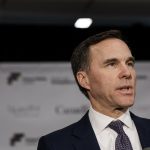White House press corps challenges familiar to Canadian journalists
The Obama administration’s lack of availability to White House correspondents is similar to the issues faced by Canadian journalists covering Parliament Hill at times.
POLITICO wrote at length about the Obama administration’s lack of availability to White House correspondents and the government’s media puppet-mastery, noting that "the most unique twist by this White House has been the government’s generating and distributing of content."
"[T]he mastery mostly flows from a White House that has taken old tricks for shaping coverage (staged leaks, friendly interviews) and put them on steroids using new ones (social media, content creation, precision targeting)," Jim VandeHei and Mike Allen wrote earlier this week. "And it’s an equal opportunity strategy: Media across the ideological spectrum are left scrambling for access."
Mike McCurry, who was press secretary to President Bill Clinton during the Monica Lewinsky scandal told Politico that “the balance of power used to be much more in favor of the mainstream press.
Nowadays “the White House gets away with stuff I would never have dreamed of doing,” he said. “When I talk to White House reporters now, they say it’s really tough to do business with people who don’t see the need to be cooperative.”
Ben LaBolt, spokesman for Obama's 2012 campaign, didn’t deny that the White House was more controlling of the message.
Re @mikeallen @jimvandehei piece – All electeds should produce digital content often given how many Americans don't watch news/read paper
— Ben LaBolt (@BenLaBolt) February 19, 2013
The White House has found more ways to engage Americans in the conversation directly, so should the media
— Ben LaBolt (@BenLaBolt) February 19, 2013
The lack-of-access issue rings familiar for many Canadian journalists covering Parliament Hill. Political reporters in Ottawa have often complained about the lack of access and transparency with Prime Minister Stephen Harper and his Conservative government.
Harper’s media team has also used social media to sideline mainstream media and speak directly to voters.
The public got a rare glimpse into Harper’s routines in January with his #dayinthelife tweets, photos and video. It was an opportunity to humanize Harper, a politician so often accused of being secretive.
[node:ad]This move towards what has been called “brand journalism” is based on the idea that today, everyone—including companies and politicians—is able to publish their own content.
But as Dylan Byers, media reporter on Politico, wrote that no matter how media savvy the White House becomes, “What traditional media companies still provide is […] credibility.”
“The New York Times, The Washington Post, POLITICO—harp on their faults all you want, they're not propagandists; White House communications personnel are, by definition,” he wrote. “So by undermining the media's credibility—by harping on its obsessions with small-ball or, in LaBolt's case, dismissing its relevance—the White House is actually trying to gain market share, thereby reducing its own reliance on "traditional media."
The issue came to a head when Obama on Sunday over the lack of access to a golf game that Obama played with Tiger Woods on Sunday.
Similarly, reporters in B.C. also complained last March about the lack of access when Sara MacIntyre, Christy Clark’s former director of communications, tried to stop journalists from scrumming the B.C. premier.
However, Fox News commentators Bill O'Reilly and Charles Krauthammer said the president was entitled to rebuffing the media on Sunday.
"The guy wants to play golf,” Krauthammer said. “The guy deserves a couple of days off. He wants privacy. Big deal. This is—this is the biggest non-media, non-story that the media have created since the Kardashian weddings.”
"The press being banned from covering his leisure activities, you don't care?" O'Reilly asked.
"Absolutely not," Krauthammer said. "You want to watch him shank and slice?"
"I'm kind of with you on this, I don't care," O'Reilly said.
Watch the video of that conversation here.
Tamara Baluja is an award-winning journalist with CBC Vancouver and the 2018 Michener-Deacon fellow for journalism education. She was the associate editor for J-Source from 2013-2014.




